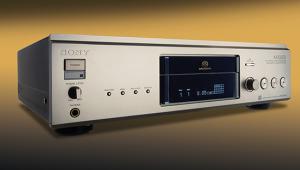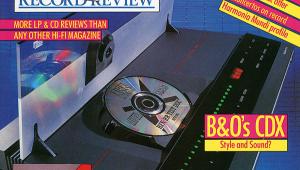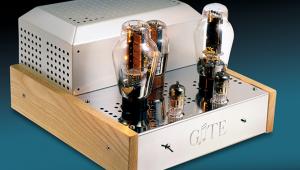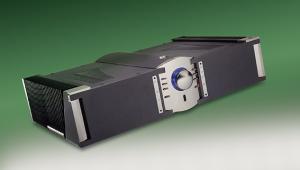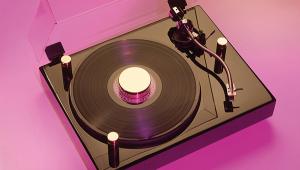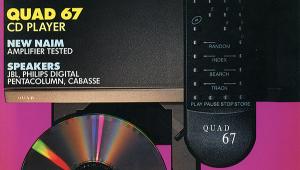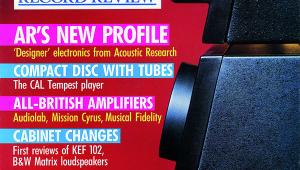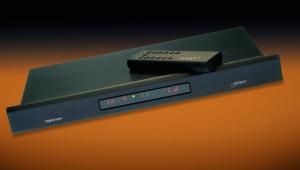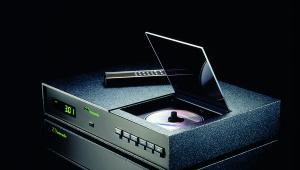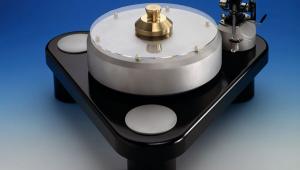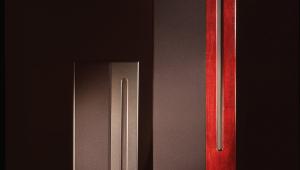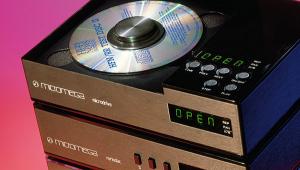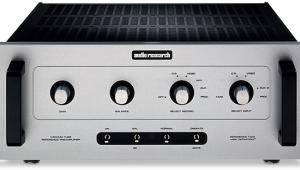Halcro dm58 monoblock Page 2
Post Grunge
As with the top amplifiers from Linn, the dm58 uses a switch mode power supply, in anticipation of CE regulations and adhering to Candy's belief that the grunge produced by conventional power supplies is one of audio's biggest culprits; like the Linn, the dm58, and the higher-powered dm68, lay to rest any worries that the post-CE-approval future would be one free of hugely powerful amplifiers.
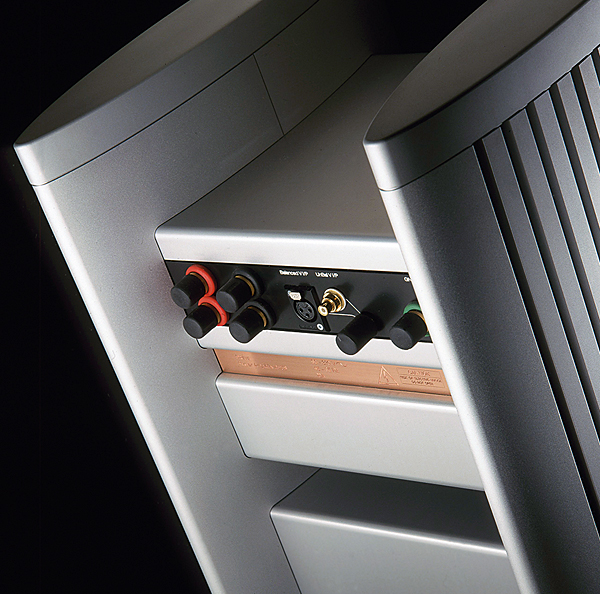
Like the external hardware (and that cool air-pressure switch), the internal components are no-compromise. All of the semi-conductors are 'at least industrial grade', and all electrolytics are rated to 105oC. Resistors were chosen for their linearity, and the capacitors are MKP10/FKP1 types. PCBs are 6-layer for the power amp section to minimise stray magnetic fields and 4-layer in the power supply to minimise EMI and voltage transients, to improve reliability and efficiency.
There's also plenty of mains filtering – EMI filtering on the input and between amp and power supply, plus high-frequency filtering at the inputs and outputs – while the amount of protection it boasts makes it the perfect amp for paranoids. It's short circuit-proof, has over-current limiting, gradual power limiting if it grows too hot, cut out if continuous DC offset appears on the outputs, and protection against mains transients.
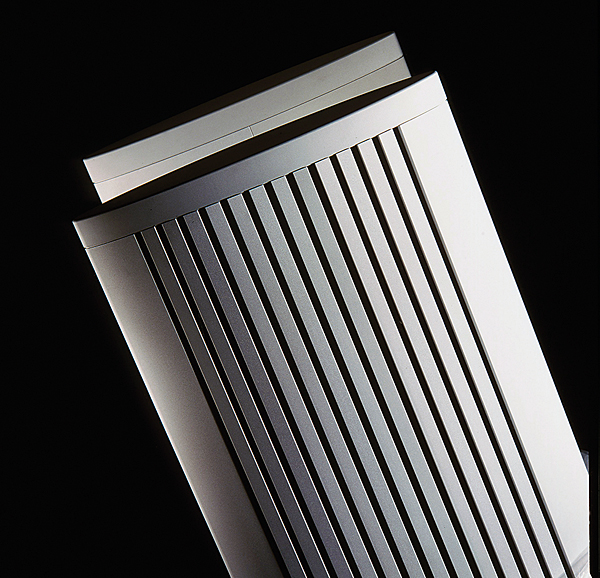
Because it can be used in both single-ended and balanced modes, I drove it with the GRAAF 13.5B preamp for most of the listening, as well as with the Musical Fidelity Nu-Vista and Quad QC twenty-four in single-ended mode. Regardless of what you may or may not think of balanced operation, in the case of the Halcro dm58, the superiority is not subtle. Sources, meanwhile, included the Nu-Vista 3D and the Marantz CD-12/DA-12 CD players.
![]() Skinny Dipping
Skinny Dipping
Damn, is this a fine amplifier. Even though the beast requires a long warm-up period, it sounds so good at cold temperatures that you can only wonder how it might improve. What the warm-up does is free the sound, increasing the already wide dynamic contrasts, while sweetening the treble to almost tube-like levels. Y'see, this amp is so clean and naked-sounding, as the Candy-man intended, that it is merciless in revealing the ills of all that go before it. And in a certain sense, yes, it could be mistaken for the clinical. But it isn't: it's merely open-sounding, probably the most untainted sound I've ever heard.
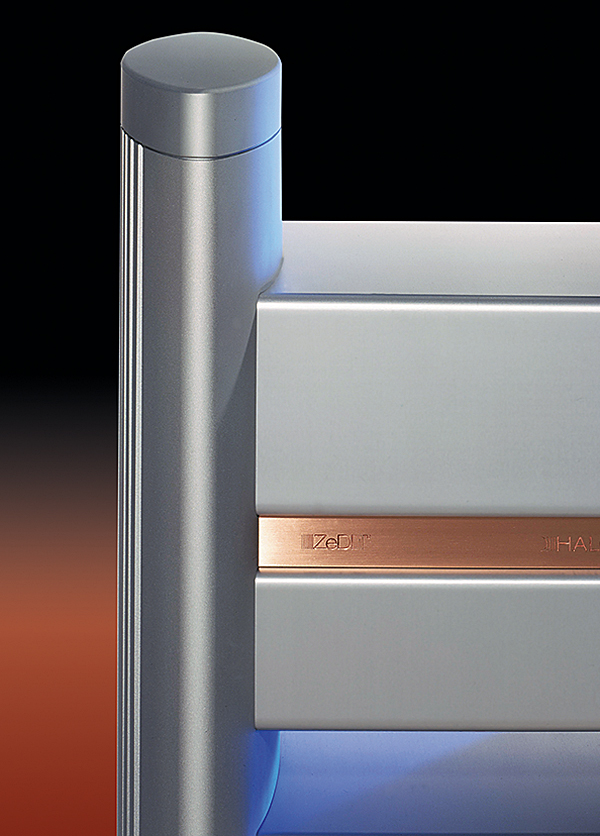
Born Free
And yet how does one account for the following: it's neither colourless nor characterless. But if it's truly neutral and clean, and therefore lacking any artefacts (either dissonant or euphonic), how can it have a personality? But it does. It swings, by virtue of the freest, deepest, most life-like bass I've heard this side of the ARC Reference 600, with such speed and precision that I even subjected myself to Rob Wasserman CDs. The bass is so luscious that you're tempted to disconnect the Wilson WATTs...
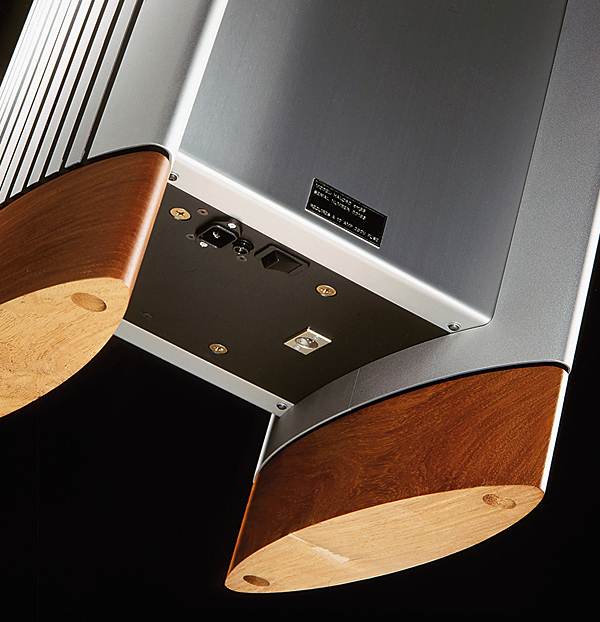
But then you feed it some vocals, this month I'm on a Temptations jag. Even though I wanted to lock the whucka-whucka guitars on 'Cloud 9' into A-B repeat mode – this amp could have Marshall emblazoned on it – I headed for 'Papa Was A Rolling Stone' to hear high vocals floating over low. I have no idea what Candy listened to as a kid, but I bet he heard more than his share of Motown. The Halcro dm58 delivers all of the textures and nuances with the flair of a Radford STA25, but with reserves of grunt which no brace of EL34s can, alas, muster.
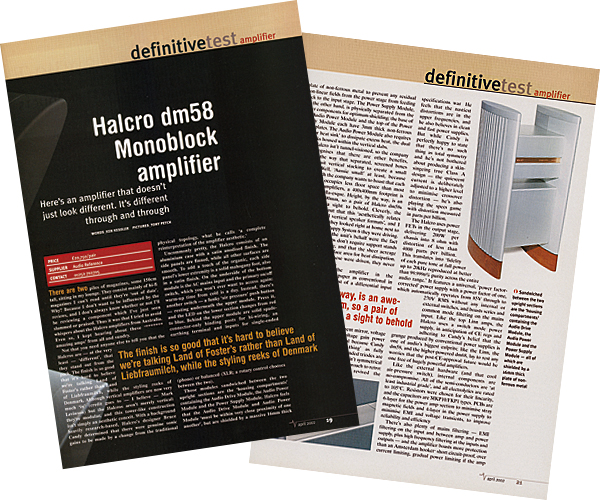
It loved the Wilson WATT/Puppies, and a few minutes with the Apogees showed it to be oblivious to loads. Quad electrostatics? No sizzle, no sting, and a dose of control that had me fantasising about how these would sound in the SME Music Room.
Yeah, I'm glad I didn't look at the reviews, or pay attention to the stories about the stunning amp from Down Under. It's so good that the £20,750 per pair seems a veritable snip. So, here's another amp to add to KK's Lottery Win list, alongside the ARC REF600. And to think DTS uses nine of 'em plus five of Halcro's larger dm68s for multichannel...


